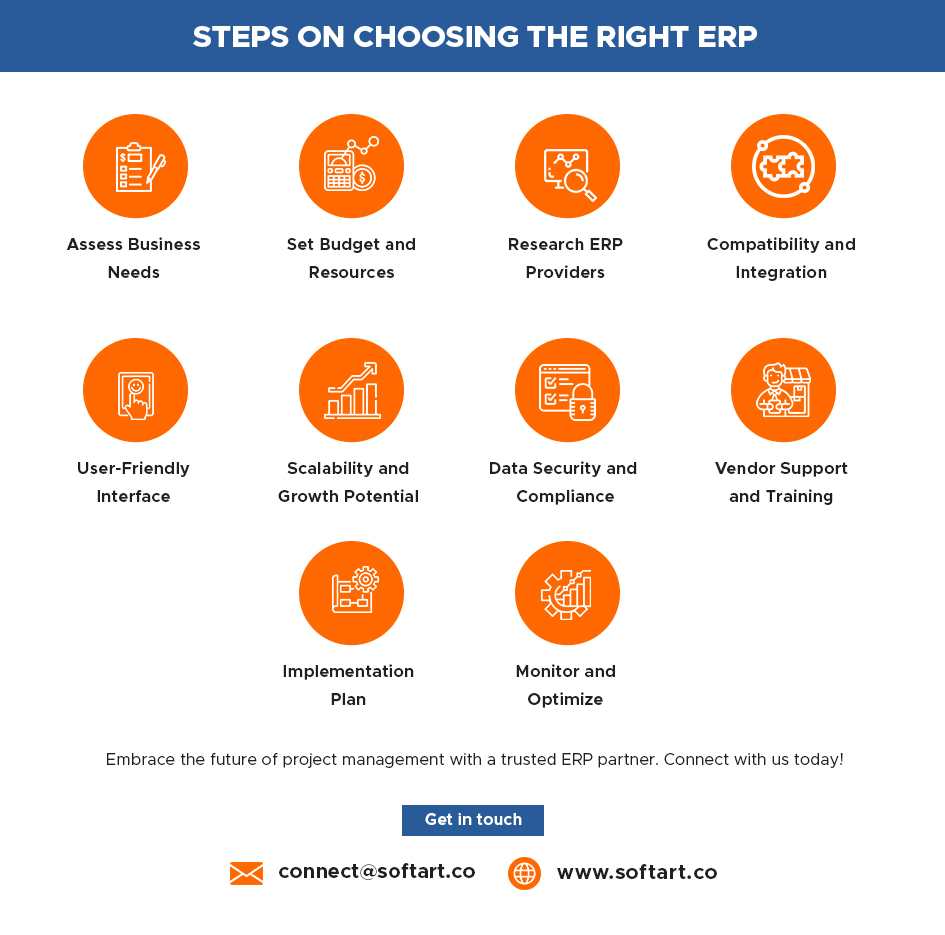
For small businesses, adopting the right ERP system can be a game-changer. It can help you gain better control of your business operations, provide insights for informed decision-making, and facilitate growth. When you implement ERP for small business, you’re not just investing in software; you’re investing in the future success of your business.
But how do you know which ERP system is right for your business? That’s where this guide comes in. We will walk you through the process of selecting the right ERP software, from understanding the role of ERP business intelligence to determining your business’s ERP needs, and more.
In the world of ERP for small business, business intelligence plays a crucial role. ERP business intelligence is all about using the data gathered by your ERP system to make informed business decisions. It includes tools for reporting, analytics, data mining, business performance management, benchmarking, predictive analytics, and more.
ERP business intelligence offers a wealth of benefits for small businesses. It can help you understand your business’s performance, identify trends and patterns, and make data-driven decisions. It can also provide a competitive advantage by offering insights into your industry, your customers, and your competition.
Not all ERP systems offer the same level of business intelligence. Therefore, when choosing an ERP system for your business, it’s essential to consider the quality and capabilities of its business intelligence tools.
You might be wondering how ERP can improve a business’s efficiency. The answer lies in the integration of business processes. With ERP software, you can streamline various business operations, eliminate manual tasks, and reduce errors and redundancies.
For example, if you’re a manufacturing business, the best manufacturing ERP software can integrate your production planning, procurement, inventory management, sales, and finance. This way, when a customer places an order, your sales, inventory, and production teams are all instantly notified, ensuring a smooth and efficient process.
Moreover, ERP systems can automate many routine tasks, freeing up your employees’ time to focus on more strategic tasks. They can also provide real-time data and insights, enabling quick and informed decision-making. In essence, ERP systems can boost productivity, improve accuracy, and save time and resources, leading to increased profitability.
Before you start shopping for an ERP system, it’s crucial to determine your business’s ERP needs. This involves understanding your business processes, identifying areas that need improvement, and defining your business goals.
Start by mapping out your business processes and identifying any bottlenecks or inefficiencies. This can help you understand where an ERP system can add value. For instance, if your inventory management is time-consuming and prone to errors, an ERP system with robust inventory management features can be beneficial.
Next, define your business goals. Are you looking to scale your business? Improve productivity? Enhance customer service? By defining your goals, you can choose an cloud ERP system that aligns with them and supports your business growth.
Finally, consider your budget and resources. ERP systems can be a significant investment, so it’s important to choose a system that fits within your budget and resources.
Now that you understand the role of ERP and have identified your business’s ERP needs, it’s time to start the selection process. Here’s a step-by-step guide to help you:

In addition to the steps mentioned above, there are several factors to consider when choosing an ERP system. These include:
Choosing the right ERP system can significantly enhance your business operations, improve efficiency, and facilitate growth. However, the selection process can be complex and overwhelming. That’s why we, at SoftArt, are here to help.
With 20+ years of experience and expertise in ERP for small business, we understand the unique needs and challenges of small businesses. We offer a range of ERP solutions, from business modeling in ERP to ERP business intelligence, and more. Our team of experts will guide you through the entire process, from identifying your needs to implementing the right ERP system.
Take your business to the next level with the right ERP system in SoftArt. Contact us today to get started.